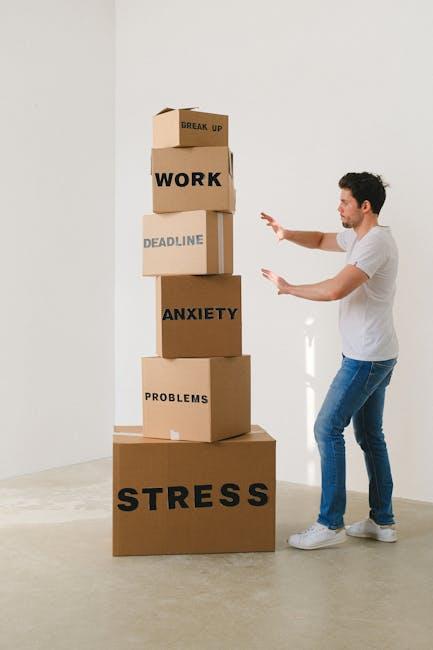In the intricate dance of human relationships, conflict is an inevitable partner. Yet, how we engage with this partner often speaks volumes about the health of our connections. Is steering clear of conflict a wise move, a graceful sidestep in the choreography of love and friendship, or is it a red flag, signaling deeper troubles beneath the surface? This article delves into the nuanced world of conflict avoidance, exploring whether it serves as a protective shield for harmony or a silent saboteur, quietly unraveling the fabric of relationships. Join us as we navigate the delicate balance between peace and authenticity, uncovering the truths that lie beneath the avoidance.
Navigating the Peaceful Path: Understanding Conflict Avoidance
In relationships, conflict avoidance can be both a balm and a barrier. On one hand, choosing to sidestep disputes may seem like a wise strategy to maintain harmony. It allows partners to focus on shared joys rather than dwell on differences. Benefits of conflict avoidance might include:
- Preservation of peace and tranquility
- A focus on positivity and shared values
- Reduction of stress and emotional turmoil
However, when avoidance becomes a default mechanism, it can obscure underlying issues that require attention. Potential drawbacks of avoiding conflict are:
- Unresolved issues festering beneath the surface
- Lack of genuine communication and understanding
- The illusion of harmony while deeper problems persist
Striking a balance between peacekeeping and open dialogue is crucial. Understanding when to engage and when to let go can help navigate the path towards a healthier relationship.
Signs of Harmony or Hidden Struggles: Decoding Relationship Dynamics
Understanding the nuances of conflict avoidance in relationships requires a discerning eye. On one hand, sidestepping disagreements can be seen as a path to maintaining peace and demonstrating mutual respect. Partners may choose to focus on shared values, prioritizing harmony over discord. This approach can sometimes foster a nurturing environment, especially when minor issues are at stake.
However, it’s crucial to consider whether avoidance stems from a deeper issue. Hidden struggles often manifest when one or both partners feel unheard or invalidated. Ignoring conflicts might be a defense mechanism, masking underlying dissatisfaction or fear of confrontation. Signs of trouble might include:
- Consistent reluctance to discuss important topics
- Feelings of resentment building over time
- A sense of walking on eggshells to maintain peace
Decoding these dynamics involves open communication and a willingness to address both surface-level and deeper emotional concerns. Striking a balance between avoiding unnecessary conflict and confronting significant issues is key to a truly harmonious relationship.

Effective Communication: Strategies for Addressing Avoidance
Addressing avoidance in relationships requires a delicate balance of empathy and assertiveness. Open dialogue is crucial; it helps both parties feel heard and understood. Begin by acknowledging each other’s feelings without judgment. This creates a safe space for honest communication.
Here are some strategies to consider:
- Active Listening: Give your full attention to your partner’s words and emotions, responding with empathy.
- Express Needs Clearly: Use “I” statements to convey your feelings and desires without placing blame.
- Set Boundaries: Clearly define what is acceptable and what isn’t, ensuring mutual respect.
- Seek Compromise: Work together to find solutions that satisfy both parties, fostering a collaborative environment.
By implementing these strategies, you can transform avoidance into constructive conversations, paving the way for a more resilient relationship.

Building Stronger Bonds: Encouraging Healthy Discourse
When it comes to nurturing meaningful connections, the way we handle disagreements can be a revealing factor. Conflict avoidance might seem like a peaceful approach, but it can sometimes mask deeper issues. Here are some aspects to consider:
- Surface Harmony: Avoiding conflict may create an illusion of tranquility, yet it can prevent partners from addressing underlying problems.
- Emotional Distance: Steering clear of disputes might lead to emotional detachment, where crucial feelings and thoughts remain unspoken.
- Missed Growth Opportunities: Healthy discourse often leads to personal and relational growth, fostering a deeper understanding and connection.
Encouraging open communication not only strengthens bonds but also ensures that both partners feel heard and valued. By embracing healthy discourse, couples can transform potential conflicts into opportunities for growth and understanding.




